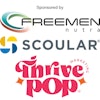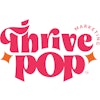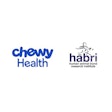The Association of American Feed Control Officials (AAFCO) and National Industrial Hemp Council of America (NIHC) co-hosted a well-timed webinar, "Hemp as a Feed Ingredient: A National Discussion," for pet food, animal feed, and hemp industries and regulatory officials, discussing peer-to-peer questions, challenges, solutions and best practices. Held on Aug. 9, the webinar featured 18 topic-specific, industry experts and almost 600 virtual attendees discussing answers to the complex question, Why isn't hemp in animal feed?
"The webinar was not a debate; rather, it was a national discussion on overcoming challenges and gaining approval for hemp seed and hempseed by-products as ingredients in animal feed. The purpose was to connect with industry peers and share meaningful dialogue around moving forward together," said Hollis Glenn, member of AAFCO's board of directors and deputy commissioner of operations for the Colorado Department of Agriculture. "This topic has been on everyone's radar for years. More than ever, it was the right time to stimulate an important industry conversation that brings us all closer to reaching a common goal--and to collaborate on safe solutions."
Interest in the use of hemp in commercial animal feed has accelerated since the passage of the 2018 Agricultural Improvement Act ("Farm Bill"). While the Farm Bill expanded the legal production of hemp in the United States, the use of hemp in animal feed remains under the jurisdiction of the U.S. Food and Drug Administration (FDA) and state regulatory programs for commercial animal feed.
In early 2022, AAFCO and 17 industry and regulatory organizations issued a joint open letter to state agriculture leadership, calling on them to support greater education and scientific research to ensure the safety of hemp in feed. NIHC subsequently issued a letter inviting AAFCO and industry professionals to collaborate together to achieve safe solutions.
"By co-collaborating with AAFCO, we were able to address a path forward for the hemp and animal-feed industries--working together to identify ways to decrease barriers and speed up approvals. The webinar provided the clarification we all have been craving," said Hunter Buffington, member of NIHC's government affairs committee and vice president of policy & advocacy for element Dynamics. "With a shared goal, we will soon achieve the regulatory oversight and approval of new feed ingredients for the agriculture, livestock, and hemp industries. And that's good news for all of us."
The hemp-in-feed webinar was divided into three parts to address priority topics: 1) Scientific Research and Data; 2) Ingredient Review and Approval, and 3) General Interest and Concerns. Each portion included six multi-industry panelists leading a dialog around his or her particular topic. Panelists were part of a spirited conversation, which also included answering questions that were submitted by virtual attendees.
Key Webinar Takeaways and Outcomes
Some highlights from the "Hemp as a Feed Ingredient: A National Discussion" webinar included the following top-10 takeaways:
- Clarification: The panel focused on hemp as a feed ingredient rather than its potential as a supplement or medicated feed. Hemp used for human and animal nutrition comes from the oil seed and its by-products. The FDA has recognized hempseed: oil, hearts and protein powder as Generally Recognized as Safe (GRAS) for human consumption, which provided the basis for the panel's conversation.
- Collaboration: Multi-industry leaders, from hemp and animal feed producers to researchers, government regulators, and policymakers, agree that it is important to collaborate and coordinate on safe solutions and best practices–all from the same position.
- Discussion: National discussions, forums, and multi-industry collaboration will help move the approval process forward with new ideas, procedures, and solutions. Finding out what other people are doing and needing across industries–and then collaborating–will help all industries understand the challenges and opportunities.
- Research: It is imperative that, in order to meet regulations, the nutritional profile of hemp and its effects on the nutrition of animal by-products (e.g., eggs, beef) be well-researched and precise. The regulatory process can be long, but it is critical to work through the research.
- Data: Safety data is the number-one concern across every industry, and understanding the data will establish specification for hemp as an ingredient and analytical methods that are accurate and validated.
- Safety: People and animals consume and metabolize foods differently; so hemp for humans is different than it is for livestock and pets. It's important to establish safety and utility in target animals and pets first, then to ensure the safety of meat, milk, and eggs that are marketed for human consumption.
- State Support: State feed programs can encourage research; address consumer concerns; support land grants, and engage with their farmers.
- Opportunities: Biggest opportunities with hemp seed as an ingredient: alternative crop for farmers and industry; good nutrient source for animal feed; and additional raw materials as our populations grow.
- Challenges: The acceptance and availability of peer-reviewed safety and utility data for animal feed for different species of animals; the lack of universally accepted standard testing methods for hemp ingredients for inclusion in feed; and a need for additional information about the long-term effects on animal welfare and the safety of the human food supply.
- Utility: Unified standards that align with the regulatory laboratories charged with feed safety will help our animals and our industry; ensure animal and human safety by validated methods to test hemp grain for contamination.
A full recording of the webinar can be found here.













